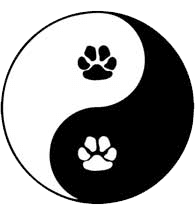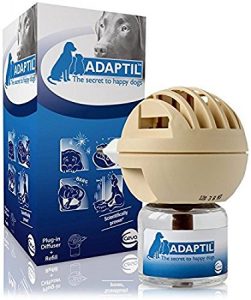Listen to this post |
I recently posted on the Dr. Roger Holistic Vet Facebook page about the Canine Influenza H2N2 outbreak in my home state of Florida. The article I posted came from my general veterinary blog at Web-DVM.net, since I do not like posting duplicate content on my respective blogs. Nonetheless, I felt that this information was as important for my holistic veterinary blog as it was for my general veterinary blog.
The article presents the facts about the Canine Influenza virus’s high morbidity and educated owners about the risks of the disease and criteria for immunization, highlighting my own veterinary clinic’s immediate implementation of a Canine Influenza immunization program. While publicly I did not get much backlash about the article, privately I have received disappointment that I would have a holistic veterinary website, call myself a holistic veterinarian, and yet promote a vaccination protocol for dog flu. I would actually like to thank those readers for raising this issue, as it inspired this post to clarify what holistic veterinary medicine really means.
I consider the terms “integrative medicine” and “holistic medicine” to be synonymous and interchangeable. Both terms suggest a combination of proven traditional western and alternative treatment to treat the “whole” patient; hence the term “hol-istic.” Unfortunately, the term has morphed into the notion that holistic medicine rejects western medicine, immunization, and anything outside of herbal or otherwise natural treatment. I want to be clear that if that is how someone interprets holistic veterinary medicine, that is one’s prerogative, but I will state right now that is clearly not my view nor is it my intent to suggest with this blog.
Holistic medicine seeks to refrain from drawing lines of strictly traditional or strictly alternative treatment in the care of the patient, to use the best available traditional western and alternative veterinary medical techniques that will advocate for the best outcomes for the patient. Here is a typical example of how integrative veterinary medicine works and I put into practice:
I diagnose a cranial cruciate ligament tear in the knee of a dog. I recommend surgery, because without surgically stabilizing the injured knee, it will always be painful and cause lameness. The ligament will not heal on its own because ligaments have poor blood supply, the lack of which prevents healing cells to be delivered to effectively heal the tissue. Following surgery, I will treat the dog with antibiotics to prevent infection, anti-inflammatories and opioids to reduce swelling and control pain. This is the western aspect of the case management.
On the alternative side, I am going to recommend rehabilitation with class IV low level therapy laser, and polyglycated glycosaminoglycan (Adequan) injections. The laser reduces pain by triggering the release of intrinsic endorphins locally, increases healing rates by dilating arterial blood vessels to bring in healing cells, reduces inflammation by dilating venous and lymphatic blood vessels to drain away inflammatory products and fluid. The Adequan provides potent base molecular building blocks for the repair of connective tissues in the body, while increasing joint fluid production within joints. This combination significantly reduces post-operative pain and increases post-operative healing rates by 40%. For the long term, I recommend the post-operative CCL patent be maintained on pharmaceutical grade joints chews and omage-3-fatty acids for long term minimization of inflammation, and maintenance of musculoskeletal structures.
In a similar manner, whether it is an orthopedic case such as this or an internal medicine case, this is always my approach. From the western traditional approach, I treat the disease directly. As western techniques, whether surgical or medical, stabilize and reduce clinical signs of disease, I concurrently integrate alternative techniques that aid the body to ultimately do what it does best and heal itself. The ultimate goal is to minimize the dependence on western surgery and medicine that sometimes comes with unwanted side effects and rely more on alternative techniques that by in large do not.
Dr. Roger Welton is a practicing veterinarian and highly regarded media personality through a number of topics and platforms. In addition to being passionate about integrative veterinary medicine for which he is a nationally renowned expert, Dr. Welton was also an accomplished college lacrosse player and remains to this day very involved in the sport. He is president of Maybeck Animal Hospital , runs the successful veterinary/animal health blogs Web-DVM and Dr. Roger’s Holistic Veterinary Care, and fulfills his passion for lacrosse through his lacrosse and sport blog, The Creator’s Game.




